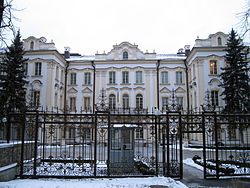Supreme Court rejects allegations against its judges
Following the briefing given on Mykhailo Havrylyuk, Deputy Prosecutor General and member of the High Council of Justice in which he stated that Supreme Court judges had illegally changed the sentences of 15 dangerous criminals from life imprisonment to 15 years, the Supreme Court on Wednesday issued a press release.
It states that in 2009 a problem arose with uneven court practice caused by a Constitutional Court judgement from 29 December 1999 which found the death penalty to be unconstitutional. In implementation of this judgement, a law was passed on 22 February 2000 which transmuted sentences of death to life imprisonment.
During the period in between the CCU judgement and the new law being passed, the harshest sentence which could be handed down was 15 years imprisonment.
At the same time, the Supreme Court Press Service explains, some judges did actually pass life sentences, while others sentenced people to 15 years.
This situation led to numerous appeals to the Supreme Court from prisoners sentenced for particularly serious crimes committed during that period, asking for their sentences to be reduced from life imprisonment to 15 years.
In view of this, in 2009 at joint meetings of the Supreme Court’s Criminal Chamber and Military Court Chamber a number of criminal cases were reviewed with the decision being taken to change life imprisonment to a 15 year sentence.
The Supreme Court based its decision on the fact that for crimes committed during the said period for which the Criminal Code envisaged the death penalty, the only sentence possible until the new life imprisonment sentence introduced was 15 years.
“The review of these cases was carried out with the participation of the Deputy Prosecutor General who found the position of the applicants regarding the need to change the sentence from life imprisonment to 15 years to be legally justified. Furthermore, in a number of cases the grounds for review of the sentences in such a category of cases was put forward by the Prosecutor General’s Office”
The Supreme Court points out that in order to ensure that the legal situation was clear and unequivocal, it made a submission to the Constitutional Court on 4 June 2010, and the latter issued a Judgement on 26 January 2011.
The allegations made by the Deputy Prosecutor General that Supreme Court judges who took part in taking these decisions acted in breach of their oath are therefore unfounded.
More information can be found about Havrylyuk’s briefing here and about reasons why many consider this to be the latest attempt to bring the Supreme Court into line and ensure that Vasyl Onopenko is not re-elected its Head, in Supreme Orchestration and Parliament adopts Law on Loyal Supreme Court.






